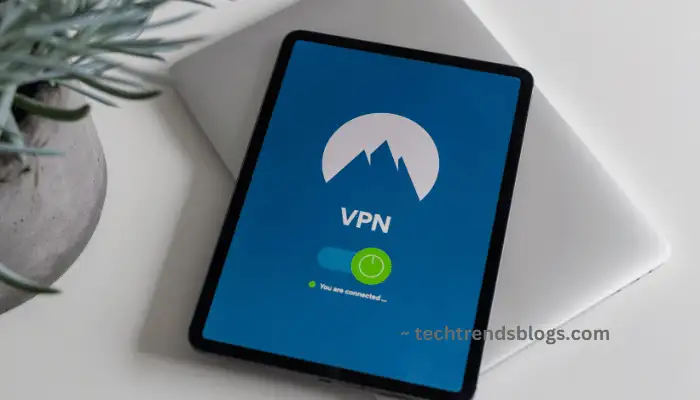Own an iPhone or Android smartphone and on the go but needing to connect online for email access… post a TikTok video? Free Wi-Fi at the coffee shop or mall may be tempting. But not unless you have some protection. It is not the best idea to connect over unsecured connectivity. By pretending that it is an official Wi-Fi network, hackers are able to discreetly position themselves between you and the internet, watch every little thing you do online including slipping malware on your device or installing a rogue hotspot concent. So this is one of the better times to employ a virtual private network, or VPN.
What is a VPN?
A VPN (Virtual Private Network) is a program or service that can hide your online activity from anyone on the internet. The VPN encrypts your traffic data so no one else can read it at all and then passes it through private tunnels to be routed through secure servers around the world. Think of normal internet use as a passing city bus, and using VPN is like having your own private limo with tinted windows. The passengers in the bus and its destination sign are plainly visible to anyone. The limo, meanwhile, provides only modest clues to those on the street as to what is scooting past and where that scoop might be bound.
Why Do I Need to Use a VPN?

- Privacy: One of the primary reasons. Using a VPN while you are connected to an open public Wi-Fi network such as in a hotel lobby or coffee shop will secure your online privacy and prevent anyone from eavesdropping on you.
- Home Use: You can also use it at home if you do not want your ISP to know what you are doing. If that’s not a concern, however, then you probably don’t need to psych as long as your network is password-protected in the first place.
- Spoof Your Location: VPNs are only good for a specific category of people, fools who really think they need to pretend their phone or computer is somewhere else. Choose from dozens of countries where your VPN provider operates and you instantly get an IP address in the website, typically one that would make a site browsing through you siting at another in Singapore or Germany rather than say on desk or phone London New York. You can now watch geographically restricted content such as streaming video or localized website versions.
- Bypassing Censorship: What VPNs can do is let the rest of us bypass this censorship by pretending to be from a less restricted part.
Are VPNs Legal?
In many countries, VPNs are completely legal. Where they are not banned or those who work where information from the internet is under tight control by authorities, e.g., North Korea and China.
How Do I Choose a VPN?
While there are probably dozens and possibly hundreds of VPN services to choose from, not all will be the best. Some may also be run by shady (and who knows, criminal) operators, caution experts. Begin with the tech review websites that have tested their privacy policies, types of encryption used, ease of use, speed, and cost, among other categories. Certain review sites, however, award VPN rankings for such applications as streaming.
- Name Recognition: Better-known providers are NordVPN, Mullvad, Proton, Surfshark, ExpressVPN, and Private Internet Access.
- Kill Switch: The only thing that leaves the kill switch in action is VPN traffic, meaning that as soon as a loss of connection happens everything else goes dead. A sudden death button to protect your privacy against any eventuality which needs this kind of response and acts quickly if you prefer it switched on rather than off throughout a session.
- No Logging Guarantee: Experts suggest that you always use a VPN provider with no logging governing policies. Every single online activity of yours is a promise non-kept by not being recorded. Seek out third-party audits inspectors to corroborate these claims.
- Price: The best VPN providers are likely to charge you a monthly fee in order to use their services.
What About Free VPNs?
Experts also caution against using free VPNs, as these often offer poor security and may actually be selling your data. According to Bischoff, some free VPNs are offered by rogue operators who provide minimal information on their location and what security they have in place. “Full malware,” Bischoff said. They may insert ads into your browsing, or fail to unblock most streaming services. According to him, free VPNs are also slower “since they typically have too many users and not enough servers.” A few well-known VPNs do offer free service; however, those services are usually stripped-down versions – limited to only one device or on a data cap because they make the money from paid access. Perfect for a casual random private browse here and there.
But What About Installing and Setting Up a VPN?
A VPN is something that you can install on your computer as if it were just another percentage of software or even on your smartphone as an app. Alternatively, you can save it as a browser plugin. A VPN add-on is mostly useful for a quick surf around and to block intentionally ads/ trackings while computer-based VPNs are overhauling all traffic going through your network thus more complete protection.
- Tech Settings: Bischoff said that “The vast majority of VPN services should also be safe with default settings,” as they typically offer very secure options right out of the gate. “Typically, you only need to open the package and install it and then forget about it,” he said.
- VPN Protocols: You’ll need to take particular note of the VPN protocol, which is the specific type of setup that determines how data gets passed between and encrypted over a network. Party clubs, like TorGuard VPN, provide you the option between a number of organizing protocols. For both of those, WireGuard is one of the most popular for its fast connections that are great for streaming (not so much in China though) and OpenVPN as it supports strong encryption. They are equally safe and secure.
Are There Any Downsides?
A VPN has the potential of decreasing your internet browsing speed, as all that data needs to be encrypted when it goes out and then decrypted once arriving there which adds some extra time. According to Bischoff, a VPN will generally slow your internet speed by 5-10%. You could also find you have to fill in more captchas, or be completely locked out of some websites. Cybercriminals use VPN often for their offensive, which makes the IP address of many VPNs blacklisted in most cases. This is the case with free VPNs.
The BBC iPlayer is another one that does not seem to put up with VPNs at all, and neither DAZN nor any specifically-named service in the list seemed willing to work for myself despite looking clearly American.
Conclusion
Using a VPN is an important way to keep your privacy online and security, especially when using Wi-Fi networks on the market. You are able to use their VPN services, however, you may never access content from various regions utilizing VPNConnect.sourceforge. Although some downsides, including potential slow-down issues and sometimes captchas are worth the features. Install a good VPN (Virtual Private Network) service to protect your online activity, and browse today privately.
